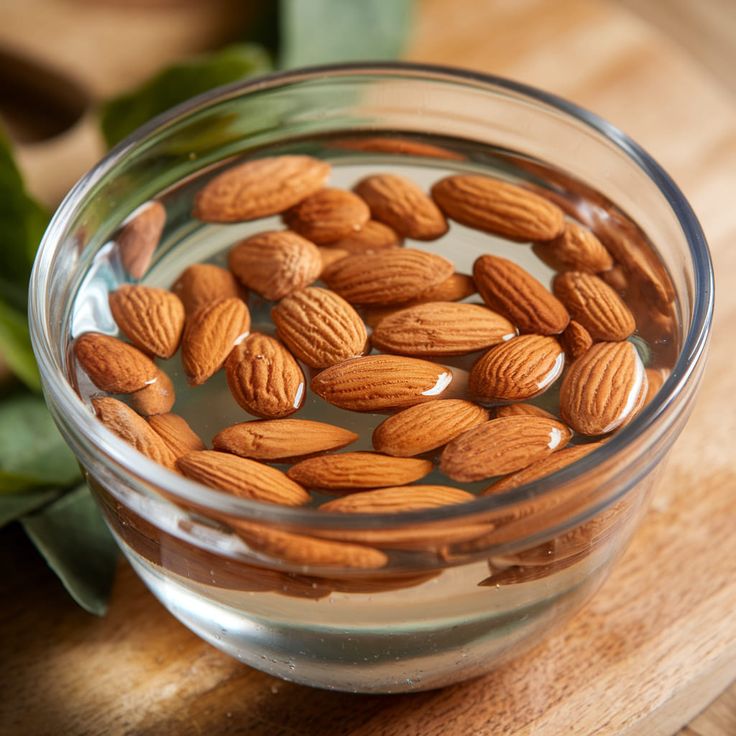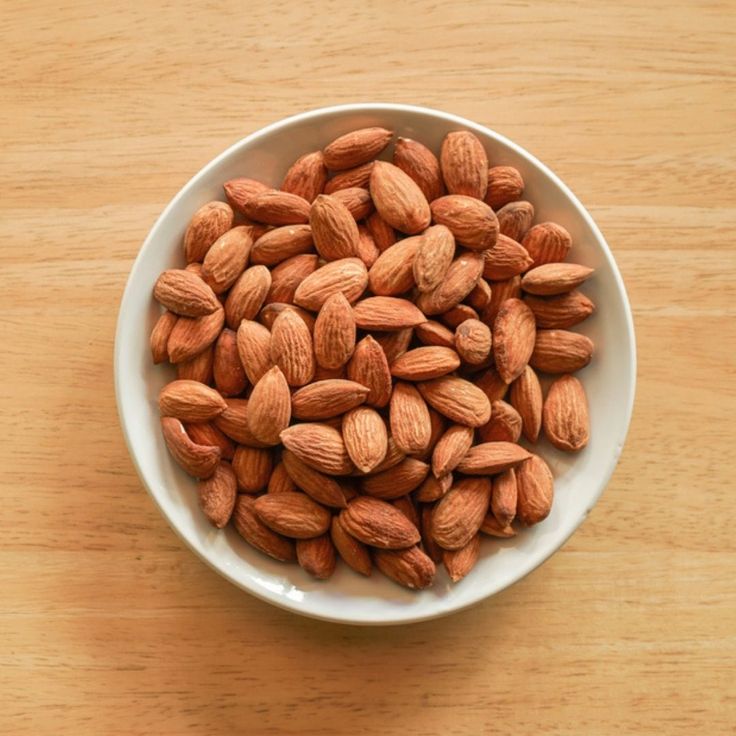
When you soak raw almonds in water overnight, several interesting changes occur. The tough outer skin becomes easier to remove, the nuts become softer and easier to digest, and certain compounds within the almonds undergo transformations that could benefit your health.
In nature, this process would happen when almonds fall to the ground and get exposed to moisture, signaling them to begin sprouting. While we’re not letting them sprout completely, we’re starting that natural process.
The Amazing Benefits of Soaked Almonds

1. Better Nutrient Absorption
One of the biggest advantages of soaking almonds is improved nutrient bioavailability. Raw almonds contain natural compounds called enzyme inhibitors and phytic acid, which can interfere with your body’s ability to absorb nutrients. Soaking helps reduce these compounds, making it easier for your body to access all those wonderful vitamins and minerals.
2. Easier Digestion
If you’ve ever experienced stomach discomfort after eating raw almonds, soaking might be your solution. The soaking process breaks down complex proteins and makes the almonds gentler on your digestive system. Many people find that soaked almonds don’t cause the bloating or heaviness that raw almonds sometimes do.
3. Enhanced Protein Quality
Soaking almonds can actually improve the quality of their protein content. The process helps break down certain proteins into more easily digestible forms, which means your body can better utilize the amino acids for muscle repair and other essential functions.
4. Increased Antioxidant Activity
Soaking almonds may actually increase their antioxidant levels. The process can boost the availability of vitamin E and other antioxidants, giving you more bang for your nutritional buck.
5. Heart Health Support
Soaked almonds retain all the heart-healthy benefits of raw almonds but in a more digestible form. The healthy fats, fiber, and magnesium in almonds support cardiovascular health, and soaking makes these nutrients more accessible to your body.
6. Better Hydration
Since soaked almonds have absorbed water, they contribute to your daily fluid intake in a small way. While this isn’t a major benefit, every little bit helps with overall hydration.
Potential Drawbacks to Consider
1. Time and Planning Required
The biggest downside to soaking almonds is the preparation time. You need to plan ahead, soaking them for 8-12 hours before you can eat them. This isn’t always practical for busy lifestyles or spontaneous snacking.
2. Shorter Shelf Life
Once soaked, almonds need to be consumed within a few days and stored in the refrigerator. This means you can’t keep them as long as raw almonds, which can be inconvenient for meal planning.
3. Texture Changes
Some people love the softer, creamier texture of soaked almonds, while others prefer the satisfying crunch of raw ones. It’s really a matter of personal preference, but the texture change can be off-putting for some.
4. Potential Nutrient Loss
While soaking increases the availability of many nutrients, it might also cause some water-soluble vitamins to leach out into the soaking water. However, this loss is generally minimal compared to the benefits gained.
5. Risk of Bacterial Growth
If almonds are soaked too long or not stored properly, there’s a small risk of bacterial growth. Always use clean water, refrigerate soaked almonds, and consume them within 2-3 days.
How to Properly Soak Almonds
If you decide to try soaking almonds, here’s the simple process: Place raw almonds in a bowl, cover with clean water (about twice the volume of almonds), and let them soak for 8-12 hours. After soaking, drain and rinse them well. You can easily remove the skins by gently squeezing each almond.
Store your soaked almonds in the refrigerator and consume them within 2-3 days for best quality and safety.

